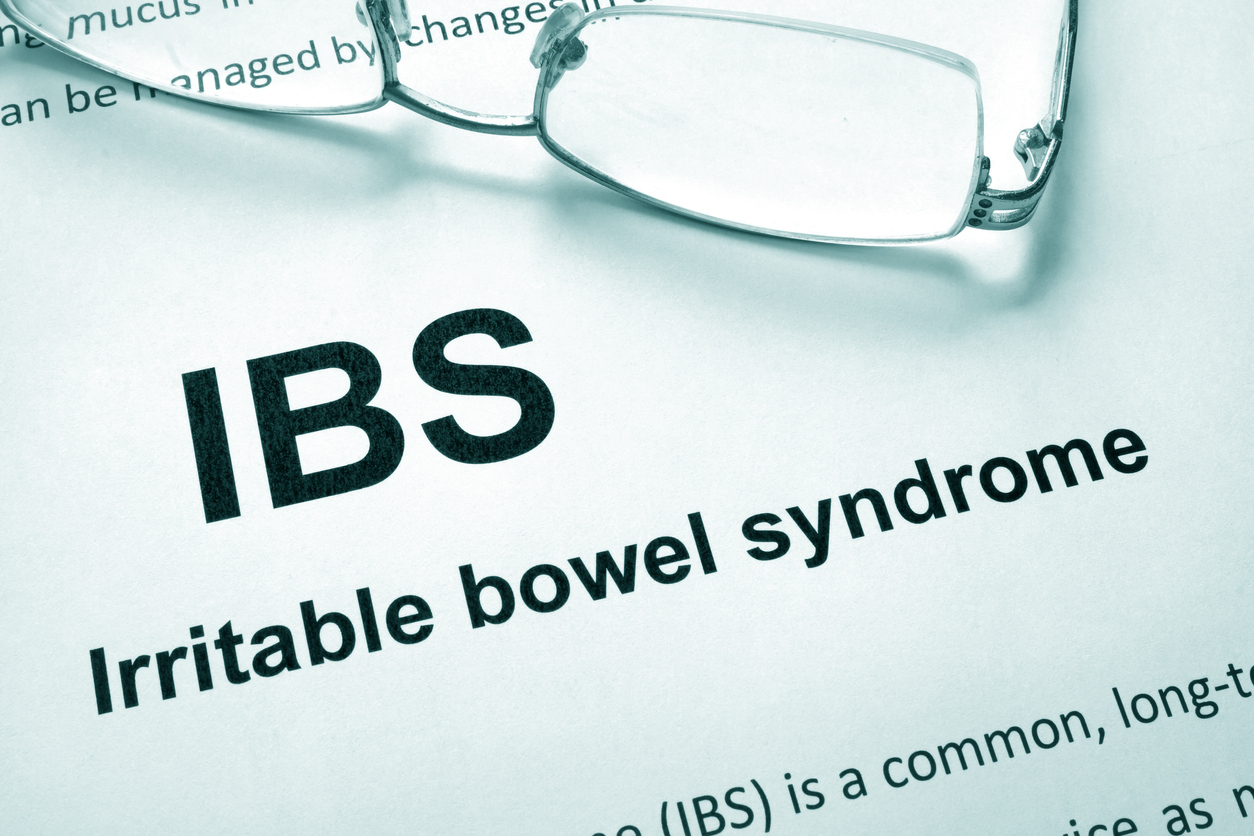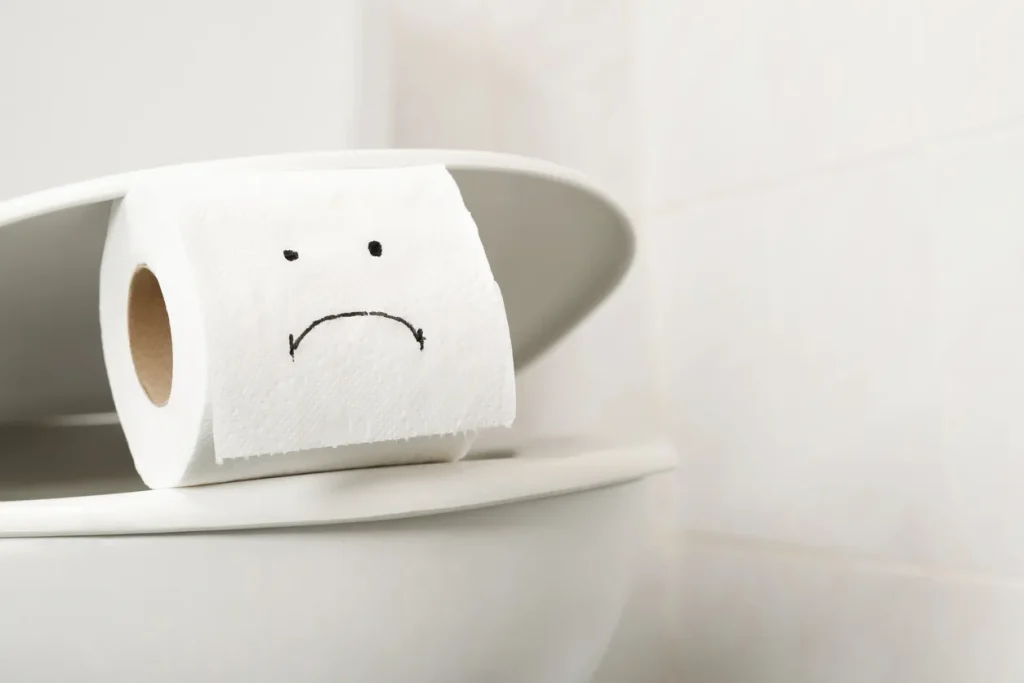During an IBS flare-up, symptoms such as bloating, abdominal pain, diarrhea, and/or constipation become more intense. Understanding how to manage these flare-ups and identifying triggers can help you regain control and find relief. Irritable Bowel Syndrome (IBS) is a chronic digestive condition that affects the large intestine.
What Are the Common Symptoms of an IBS Flare-Up?
An IBS flare-up typically involves worsening of symptoms that may have been mild or manageable before. Most individuals experience abdominal pain and cramping, often located in the lower abdomen. Bloating is another frequent issue, especially after meals, leading to discomfort and the sensation of fullness.
IBS can also present as diarrhea or constipation, depending on the type, with some people alternating between both. In many cases, increased gas and urgency to have a bowel movement become more apparent during a flare-up. If you notice these symptoms becoming more intense or more frequent than usual, it’s a clear sign that an IBS flare-up is occurring.
What Foods Should I Avoid During an IBS Exacerbation?
Managing IBS flare-ups naturally involves a combination of dietary changes, lifestyle adjustments, and stress management. One of the most effective natural approaches is to follow a low FODMAP diet. This diet eliminates specific types of carbohydrates that tend to ferment in the gut, causing bloating, gas, and discomfort. In addition to dietary changes, probiotics can play a significant role in improving gut health. They help balance the gut microbiome, alleviating bloating and other symptoms. Staying hydrated is also essential during a flare-up, as drinking plenty of water helps maintain proper digestion and prevents constipation.
Certain foods can make symptoms worse during an IBS flare-up, so it’s important to be mindful of what you eat. High-fat foods, such as fried or greasy meals, tend to slow digestion and increase discomfort, so they’re best avoided. Dairy products can also be problematic for many people with IBS, as they often lead to bloating, gas, and diarrhea due to lactose intolerance. Caffeine and alcohol are common irritants of the digestive system and can exacerbate symptoms like diarrhea or stomach pain.
Additionally, high-FODMAP foods, including onions, garlic, beans, and certain fruits like apples and pears, should be avoided during a flare-up. These foods ferment in the gut, leading to increased bloating and gas. Artificial sweeteners like sorbitol or mannitol should also be avoided, as they can cause digestive distress.
Sticking to a simple, low FODMAP diet during flare-ups can make a significant difference in reducing symptoms.
Is Stress a Major Trigger for IBS Symptoms?
Stress is a known trigger for IBS flare-ups, so managing stress is critical. Techniques such as yoga, meditation, and deep breathing exercises can reduce stress levels, helping to ease IBS symptoms. Regular exercise also promotes digestion and improves bowel regularity. Walking, swimming, or gentle yoga can be beneficial in keeping your digestive system functioning smoothly during a flare-up.
The gut and brain are closely connected, and stress directly affects how the intestines function. When stress levels rise, the body may produce more digestive acids or slow down digestion, leading to symptoms like cramping, diarrhea, or constipation. Stress also contributes to increased gut sensitivity, making it more likely for even small triggers to lead to a flare-up.
What Are the Best Treatments for Relieving IBS Discomfort?
Several strategies can relieve IBS discomfort during a flare-up.
Antihistamines delivered at a certain ratio may help your IBS symptoms. Patients with IBS and with food allergies have been shown to have increased Histamine receptors in their GI system – blocking these receptors with a certain ratio of specific antihistamines can alleviate IBS symptoms.
Antispasmodic medications, which relax the digestive tract muscles and reduce cramping, can also be used for IBS treatment. Probiotics are another helpful tool, as they promote a healthy balance of gut bacteria, reducing bloating and improving digestion. For those with constipation-predominant IBS, fiber supplements like psyllium husk can help regulate bowel movements and ease discomfort.
Over-the-counter medications like loperamide (Imodium) can help manage diarrhea during a flare-up. Applying heat therapy, such as using a heating pad on the abdomen, can provide immediate relief from cramping and abdominal pain. While these treatments can help manage symptoms during a flare-up, addressing lifestyle factors and triggers is essential for long-term relief.
How Do I Know If I’m Experiencing an IBS Flare-Up?
Recognizing the signs of an IBS flare-up is crucial for managing symptoms before they worsen. If you experience a sudden increase in abdominal pain, bloating, gas, or changes in bowel movements, you are likely to have an IBS flare-up. Certain foods, stress, or other lifestyle factors often trigger these flare-ups. Keeping your symptoms in a journal can help identify patterns and triggers, making it easier to prevent future flare-ups. This awareness can also help you take immediate action, such as adjusting your diet or managing stress, to minimize the severity of the flare-up.
Looking for fast and effective relief for your digestive discomfort? Visit Get Relief Rx today to explore proven solutions to ease your symptoms and improve your gut health. Click here to start feeling better now!





